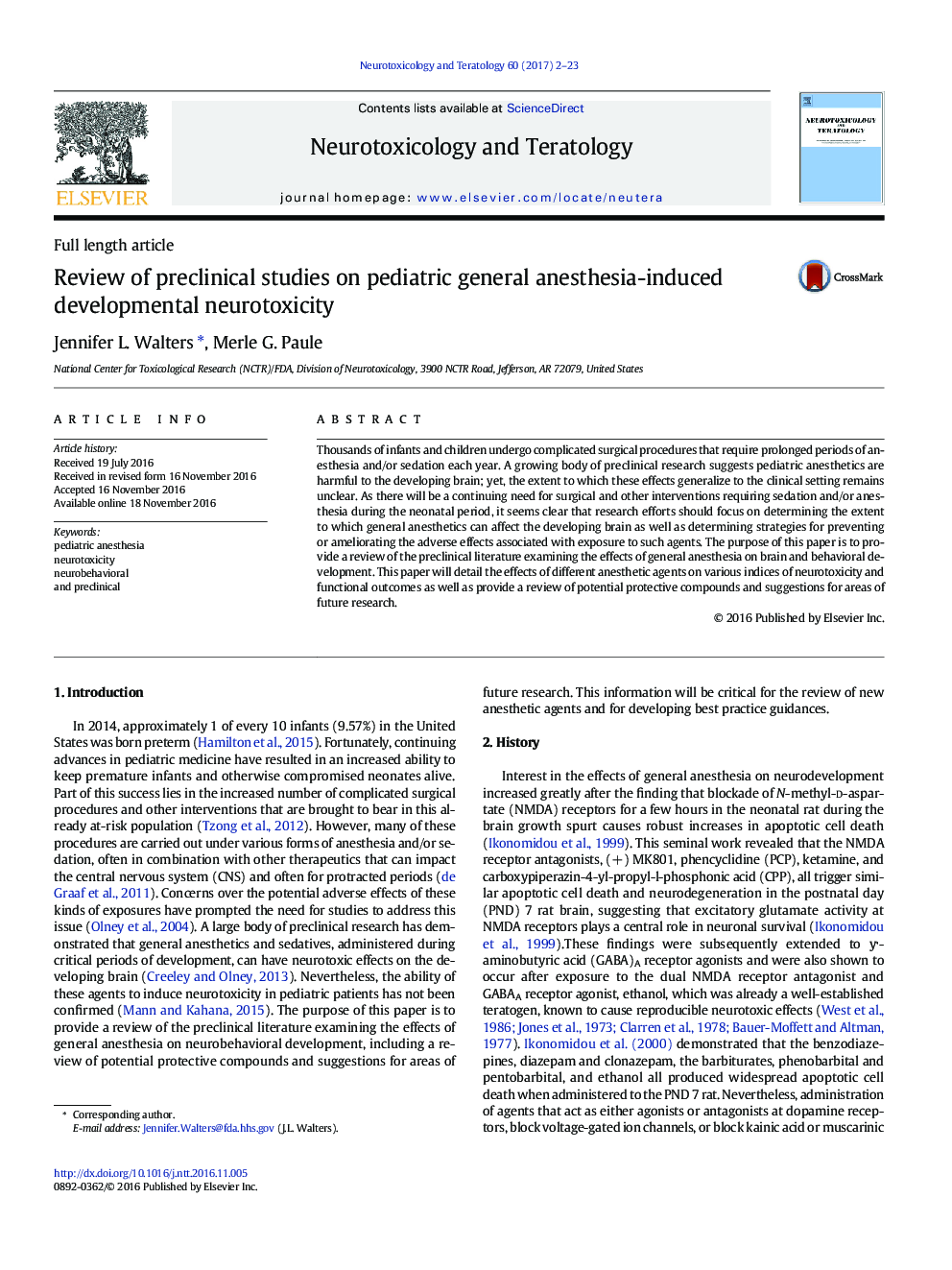| Article ID | Journal | Published Year | Pages | File Type |
|---|---|---|---|---|
| 5561007 | Neurotoxicology and Teratology | 2017 | 22 Pages |
â¢Developmental exposure to anesthesia produces abnormal apoptosis and functional impairments in laboratory animal models.â¢The developing brain is most sensitive to the neurotoxic effects of general anesthetics during rapid synaptogenesis.â¢Longer durations, higher concentrations, and repeated exposures tend to exacerbate impairments.â¢The exact mechanisms underlying anesthesia-induced neurotoxicity are unclear.â¢Preclinical studies have identified numerous agents with potential to protect against anesthesia-induced neurotoxicity.
Thousands of infants and children undergo complicated surgical procedures that require prolonged periods of anesthesia and/or sedation each year. A growing body of preclinical research suggests pediatric anesthetics are harmful to the developing brain; yet, the extent to which these effects generalize to the clinical setting remains unclear. As there will be a continuing need for surgical and other interventions requiring sedation and/or anesthesia during the neonatal period, it seems clear that research efforts should focus on determining the extent to which general anesthetics can affect the developing brain as well as determining strategies for preventing or ameliorating the adverse effects associated with exposure to such agents. The purpose of this paper is to provide a review of the preclinical literature examining the effects of general anesthesia on brain and behavioral development. This paper will detail the effects of different anesthetic agents on various indices of neurotoxicity and functional outcomes as well as provide a review of potential protective compounds and suggestions for areas of future research.
